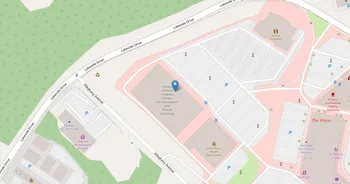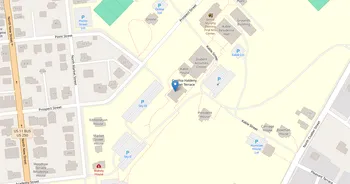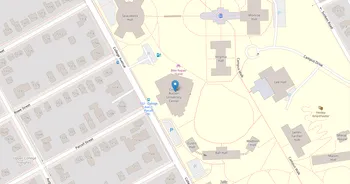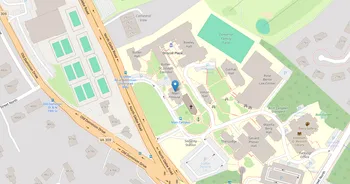University of Lynchburg : Overview, Courses, Scholarships & Rankings
About University of Lynchburg
Tucked into the foothills of central Virginia, the University of Lynchburg is known for a personal, hands-on education. Faculty mentorship runs deep across the sciences, health, business, education, the arts and communication. Students build skills through labs, fieldwork and collaborative research that feel relevant beyond campus.
Updated classrooms, studios and rec facilities sit alongside a library, writing and tutoring centers, wellness support and a career office that lines up internships and first jobs. The vibe is friendly and close-knit, with clubs, service projects and intramurals that keep things lively. And with trails, the river and a revitalized downtown nearby, weekends fill fast. The culture leans practical and community minded, and alumni connections across the region open doors. Hornet spirit shows up in everyday traditions and loud home games.
Key Institutional Details
Contact & Profile
Academic & Institutional
Academic Programs & Fields of Study
University of Lynchburg offers 56 degree programs across 20 major academic fields, graduating approximately 1,010 students annually. The most popular fields by graduate volume are Health (10 programs, 600 graduates), Business (6 programs, 102 graduates), Biological Sciences (3 programs, 65 graduates), Education (11 programs, 58 graduates) and Social Sciences (5 programs, 55 graduates). Explore program details, award levels, and graduate demographics below.
Health (10 programs, 600 graduates)
Healthcare Professions, Medical Sciences and Clinical Practice
| Program Name | Graduates | Gender Distribution | Award Levels | CIP Code |
|---|---|---|---|---|
| Physician Assistant | 440 |
|
Master's
Doctorate (P)
|
51.0912 |
| Physical Therapy | 49 |
|
Doctorate (P)
|
51.2308 |
| Registered Nursing | 40 |
|
Bachelor's
|
51.3801 |
| Public Health Education and Promotion | 19 |
|
Bachelor's
|
51.2207 |
| Athletic Training | 14 |
|
Master's
|
51.0913 |
| Health Administration and Management | 12 |
|
Post-Master's
|
51.0701 |
| Public Health | 12 |
|
Master's
|
51.2201 |
| Community Health Counseling | 8 |
|
Master's
|
51.1504 |
| Health Professions Education | 5 |
|
Post-Master's
|
51.3202 |
| International Public Health | 1 |
|
Post-Master's
|
51.2210 |
Business (6 programs, 102 graduates)
Business Administration, Marketing and Entrepreneurship
| Program Name | Graduates | Gender Distribution | Award Levels | CIP Code |
|---|---|---|---|---|
| Business Administration and Management | 66 |
|
Bachelor's
Master's
|
52.0201 |
| Organizational Leadership | 16 |
|
Master's
Post-Master's
|
52.0213 |
| Marketing Management | 12 |
|
Bachelor's
|
52.1401 |
| Accounting | 5 |
|
Bachelor's
|
52.0301 |
| Finance, General | 2 |
|
Bachelor's
|
52.0801 |
| Digital Marketing | 1 |
|
Bachelor's
|
52.1404 |
Biological Sciences (3 programs, 65 graduates)
Life Sciences, Biotechnology and Biomedical Research
| Program Name | Graduates | Gender Distribution | Award Levels | CIP Code |
|---|---|---|---|---|
| Exercise Physiology and Kinesiology | 40 |
|
Bachelor's
|
26.0908 |
| Biomedical Sciences | 16 |
|
Bachelor's
|
26.0102 |
| Biology and Biological Sciences | 9 |
|
Bachelor's
|
26.0101 |
Education (11 programs, 58 graduates)
Educational Sciences, Teaching Methods and Pedagogy
| Program Name | Graduates | Gender Distribution | Award Levels | CIP Code |
|---|---|---|---|---|
| Special Education Teaching | 19 |
|
Bachelor's
Master's
|
13.1001 |
| General Education | 15 |
|
Bachelor's
Master's
|
13.0101 |
| School Counseling and Guidance | 5 |
|
Master's
|
13.1101 |
| Music Teacher Education | 4 |
|
Bachelor's
|
13.1312 |
| Science Teacher Education | 4 |
|
Master's
|
13.1316 |
| Curriculum and Instruction | 3 |
|
Master's
Post-Master's
|
13.0301 |
| Educational Leadership and Administration | 3 |
|
Master's
|
13.0401 |
| Elementary Education | 2 |
|
Bachelor's
|
13.1202 |
| Mathematics Teacher Education | 1 |
|
Bachelor's
|
13.1311 |
| Spanish Language Teacher Education | 1 |
|
Bachelor's
|
13.1330 |
| Earth Science Teacher Education | 1 |
|
Bachelor's
|
13.1337 |
Social Sciences (5 programs, 55 graduates)
Sociology, Anthropology and Political Science Studies
| Program Name | Graduates | Gender Distribution | Award Levels | CIP Code |
|---|---|---|---|---|
| Criminology | 36 |
|
Bachelor's
|
45.0401 |
| Political Science and Government | 6 |
|
Bachelor's
|
45.1001 |
| Economics | 5 |
|
Bachelor's
|
45.0601 |
| International Relations | 4 |
|
Bachelor's
|
45.0901 |
| Sociology | 4 |
|
Bachelor's
|
45.1101 |
Psychology (1 programs, 24 graduates)
Psychological Sciences, Mental Health and Behavioral Studies
| Program Name | Graduates | Gender Distribution | Award Levels | CIP Code |
|---|---|---|---|---|
| General Psychology | 24 |
|
Bachelor's
|
42.0101 |
Communication (1 programs, 17 graduates)
Media Communications, Journalism and Public Relations
| Program Name | Graduates | Gender Distribution | Award Levels | CIP Code |
|---|---|---|---|---|
| Speech Communication and Rhetoric | 17 |
|
Bachelor's
|
09.0101 |
Kinesiology (2 programs, 15 graduates)
Exercise Science, Sports Medicine and Physical Recreation
| Program Name | Graduates | Gender Distribution | Award Levels | CIP Code |
|---|---|---|---|---|
| Sport and Fitness Management | 11 |
|
Bachelor's
|
31.0504 |
| Sports, Kinesiology, and Physical Education | 4 |
|
Bachelor's
|
31.0501 |
Arts (3 programs, 15 graduates)
Fine Arts, Design Studies and Creative Performance
| Program Name | Graduates | Gender Distribution | Award Levels | CIP Code |
|---|---|---|---|---|
| Art Studies | 9 |
|
Bachelor's
|
50.0701 |
| Theatre Arts | 3 |
|
Bachelor's
|
50.0501 |
| Music | 3 |
|
Bachelor's
|
50.0901 |
Mathematics (2 programs, 12 graduates)
Mathematical Sciences, Statistics and Computational Analysis
| Program Name | Graduates | Gender Distribution | Award Levels | CIP Code |
|---|---|---|---|---|
| Mathematics | 7 |
|
Bachelor's
|
27.0101 |
| Statistics | 5 |
|
Bachelor's
|
27.0501 |
Admission Requirements & Test Scores
Comprehensive overview of admission criteria, standardized test score ranges, and application requirements for prospective students at University of Lynchburg.
Application Requirements
Data based on IPEDS for 2022-2023 academic year. Test score ranges represent the middle 50% of admitted students (25th-75th percentile). Requirements may vary by program.
Tuition, Fees & Estimated Costs
Overview of tuition rates, housing, and other annual education expenses for undergraduate and graduate students
Financial Aid & Student Support
Summary of scholarships, grants, student loans, and financial aid statistics for undergraduate students
Student Success Metrics
Graduation rates and post-graduation earnings to help assess student outcomes and long-term value of education.
Loan Burden & Repayment Outcomes
Breakdown of loan repayment rates and student debt levels by income and dependency status.
Frequently Asked Questions
Find answers to the most common questions about University of Lynchburg
How much does it cost to attend University of Lynchburg?
The annual tuition at University of Lynchburg is $35,540 for in-state students. When including room and board, books, and other expenses, the total estimated cost is approximately $51,840 for in-state students. Additional costs include room and board $13,250 (on) / $12,550 (off) and books and supplies $1,000.
Data based on IPEDS program completions for 2022-2023 academic year. Tuition and cost estimates are approximate and may not include all fees, personal expenses, or transportation costs.
What academic programs and degree levels does University of Lynchburg offer?
University of Lynchburg offers 56 academic programs across 20 major fields of study, with available degree levels: Bachelor's, Postbac Cert., Master's, Post-Master's, Doctorate (Research), Doctorate (Professional), Other Award.
Most popular program areas include:
- Healthcare Professions, Medical Sciences and Clinical Practice (10 programs)
- Business Administration, Marketing and Entrepreneurship (6 programs)
- Life Sciences, Biotechnology and Biomedical Research (3 programs)
- Educational Sciences, Teaching Methods and Pedagogy (11 programs)
- Sociology, Anthropology and Political Science Studies (5 programs)
Data based on IPEDS program completions for 2023-2024 academic year. Numbers reflect programs where students graduated, not all offered programs.
What is the acceptance rate for University of Lynchburg?
University of Lynchburg has an 82.2% acceptance rate and a 12.1% yield rate, making it moderately selective.
Admission statistics breakdown:
- Total applicants: 4,813
- Students admitted: 3,956
- Students enrolled: 478
Data based on IPEDS for 2022-2023 academic year. Admission statistics may vary by program and application cycle.
What financial aid and scholarships are available at University of Lynchburg?
University of Lynchburg provides financial aid to 25% of first-time, full-time students, with average grants of $25,972 and average loans of $9,667.
Average financial aid amounts by type:
- Pell grants: $5,124
- State/Local grants: $4,352
- Institutional grants: $20,620
- Federal loans: $5,485
The university supports 403 students with grants and 298 students with loans annually.
Data based on IPEDS for 2022-2023 academic year. Financial aid amounts and percentages may vary by program, enrollment status, and individual circumstances.
What is the average salary for University of Lynchburg graduates?
University of Lynchburg graduates earn a median salary of $44,261 after 6 years and $56,380 after 10 years.
The salary range 10 years after graduation spans from $38,040 (25th percentile) to $78,352 (75th percentile), with top earners reaching $83,100 (90th percentile).
Data based on IPEDS for 2022-2023 academic year. Salary data reflects graduates who received federal financial aid (approximately 60% of all graduates). Actual earnings may vary significantly based on program, location, and individual circumstances.
Related Universities




Found something useful? Help others discover it too! Share with friends, on social media, or save for later - every share helps someone find the information they need.